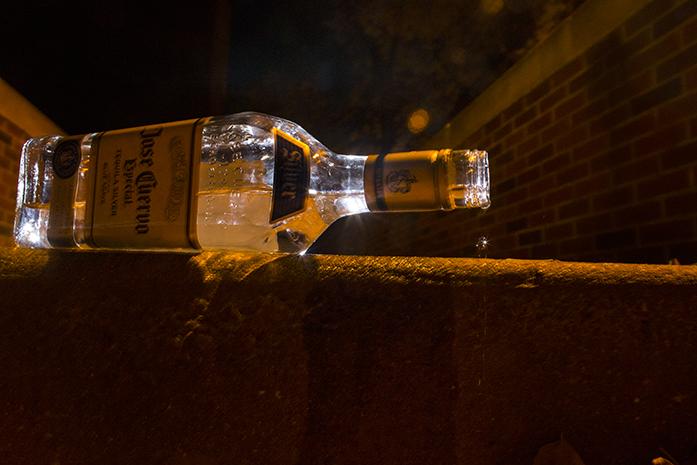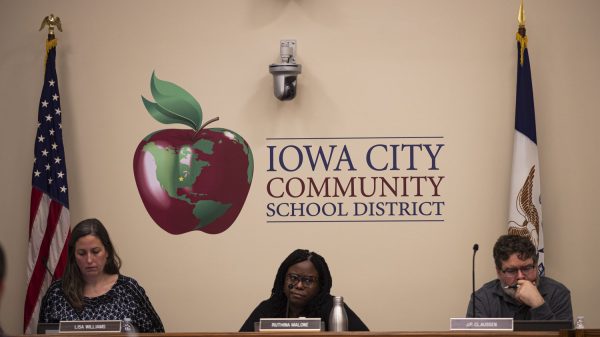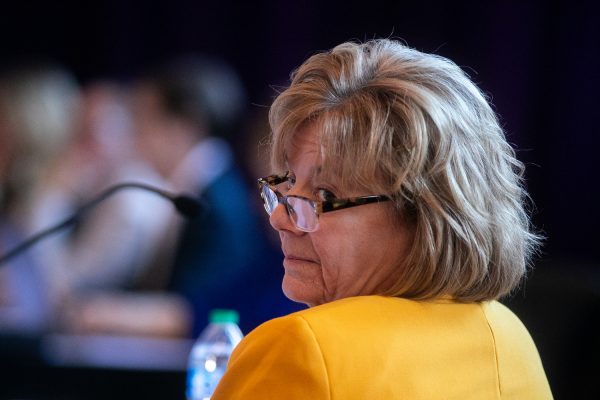For UI, dry is better
The University of Iowa recognizes National Collegiate Alcohol Awareness Week to raise awareness about high-risk alcohol consumption nationally and on campus.
October 17, 2016
The Pentacrest will be adorned with 1,800 flags this week as a symbol of the number of U.S. college students who die every year due to alcohol poisoning or other alcohol-related incidents as part of National Collegiate Alcohol Awareness Week.
According to the University of Iowa’s 2016-19 Alcohol Harm Reduction Plan, UI students “continue to drink more and experience more negative consequences than college students nationally.”
A week like this is one way to help raise awareness about high-risk alcohol consumption at the UI, Trisha Welter said, the senior behavioral health consultant at UI Student Health and Wellness.
“It’s a national week to bring awareness to alcohol issues on college campuses,” she said. “We’re not immune to alcohol issues.”
High-risk drinking has decreased significantly since the UI implemented its first of three Alcohol Harm Reduction Plans in 2010, said Tanya Villhauer, the associate director for Student Wellness and Harm Reduction Initiatives.
In 2009, the pre-Harm Reduction Plan year, Villhauer said 70.3 percent of students reported engaging in high-risk drinking, while in 2016, 50.9 percent of students reported engaging in high-risk drinking.
The UI is notorious for consistently placing in the top five on The Princeton Review’s annual party school rankings. Coming in at sixth place on the list this year, this is the first time the UI has not been in the top five since 2012.
“There’s change happening, but we have a lot more work to do,” she said.
One such effort the UI has undertaken is eliminating the perception that a majority of the students drink, Villhauer said. UI students feel that a high percentage of students drink on campus, she said, but in reality, that percentage is lower.
“We know that our students come here and they want to fit in,” she said. “They want to feel like Iowa is the place for them, and if the perception is that everyone is drinking and they aren’t, that they’re not being a Hawkeye.”
Part of this year’s Alcohol Harm Reduction plan involves attracting and retaining more low-risk drinkers to campus, Villhauer said.
This effort, UI Student Government Vice President Lauren Freeman said, is key to combating the party-school culture.
“One thing we talk about a lot … is somehow assuring students that there are students on campus that don’t drink and creating a culture around the fact that it’s OK to not drink,” she said.
Freeman said one thing they’re advocating for on a state level is a medical amnesty policy that would allow underage drinkers to call for medical help — either for themselves or another person — and not face criminal charges.
On a university level, Freeman said the UI has been implementing more recovery services for students recovering from substance abuse.
“We’ve been … looking at ways in which we can join our efforts throughout the university and the hospital and the University Counseling Services so that we can support those students recovering,” she said.
Welter said handouts containing information about campus resources will be a new component to the UI’s implementation of the week.
“We’ll have students on the Pentacrest with handouts on where students can turn to for help if they want to talk with someone about their alcohol abuse,” she said.
In light of the UI’s efforts to decrease high-risk drinking on campus, Freeman said National Collegiate Alcohol Awareness week is a great way to recognize the university’s progress on the issue.
“The week is an important culmination of efforts that occur on campus throughout the year to ensure that students are safe,” she said. “[It’s] celebrating those efforts and how far we’ve come with the new Alcohol Harm Reduction Plan.”















